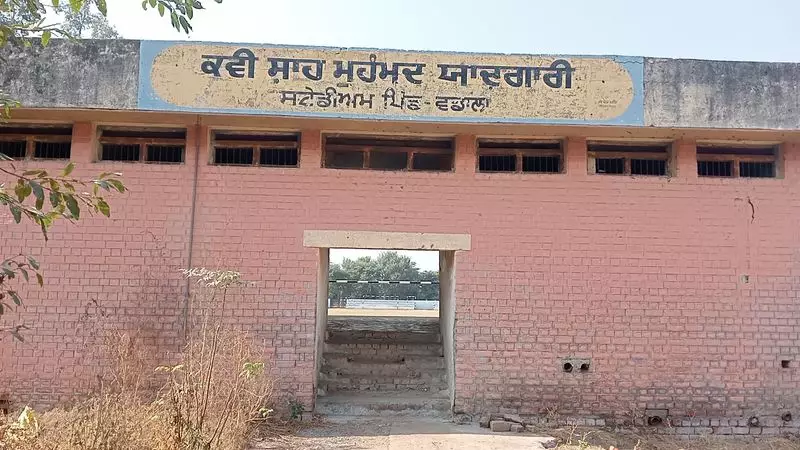
Nearly two centuries after his passing, the village of Wadala in Amritsar district has finally embraced its native son, Shah Mohammad, the visionary poet who chronicled one of the most significant conflicts in Sikh history. The long-overdue recognition comes through a newly installed statue and memorial that honor the poet's literary contributions.
The Poet Who Witnessed History
Shah Mohammad, born in 1782 in Wadala village, lived through the turbulent period of the First Anglo-Sikh War (1845-46). Unlike many of his contemporaries, the poet chose to document this historical confrontation through verse, creating what scholars now recognize as the first Punjabi ballad devoted entirely to the war.
His masterpiece, Jangnama, stands as a unique historical document written in the form of a conversation between a mother and her son. The poem captures the emotional turmoil and political complexities of the era while providing eyewitness accounts of key battles, including Mudki, Ferozeshah, and Sabraon.
What makes Shah Mohammad's perspective particularly remarkable is his balanced portrayal of both sides in the conflict. Despite being a Muslim poet, he expressed deep admiration for the Sikh soldiers and their leaders while also acknowledging the British perspective, creating a multifaceted historical record that transcends religious and political boundaries.
A Legacy Nearly Forgotten
For generations, Shah Mohammad's contributions remained largely unrecognized in his own village. The poet passed away in 1862, and his legacy gradually faded from public memory despite the historical significance of his work.
The turning point came when local residents, inspired by growing academic interest in Shah Mohammad's work, decided to reclaim this important piece of their cultural heritage. The initiative gained momentum as community members recognized the value of preserving the memory of the poet who had documented such a crucial period in Punjab's history.
Dr. Balwinder Singh, a noted historian, emphasizes the importance of Shah Mohammad's work: "His Jangnama provides invaluable insights into the First Anglo-Sikh War from a contemporary perspective. The poem not only documents historical events but also captures the emotional landscape of the period, making it an essential resource for understanding 19th-century Punjab."
Reviving Cultural Heritage
The recent installation of Shah Mohammad's statue and memorial in Wadala represents more than just a tribute to a local poet. It signifies a broader movement to preserve and celebrate Punjab's rich literary and historical traditions.
Local schoolteacher Harpreet Kaur explains the importance of this recognition: "For our students, seeing Shah Mohammad honored in his own village makes history come alive. It connects them to their cultural roots and shows them that great contributions can come from even the smallest villages."
The memorial has quickly become a point of cultural pride for residents, who now see their village as the home of an important literary figure. Community leaders hope that this recognition will inspire further research into Shah Mohammad's work and encourage the preservation of other overlooked aspects of Punjab's cultural heritage.
The revival of interest in Shah Mohammad's poetry comes at a time when there's growing appreciation for regional literature and historical documentation. His work offers a unique perspective on a transformative period in Indian history, providing insights that official historical records often miss.
As Wadala embraces its poetic heritage, the story of Shah Mohammad serves as a powerful reminder that cultural preservation requires both community initiative and institutional support. The poet who once documented history has now become part of the living history of the village he called home.






